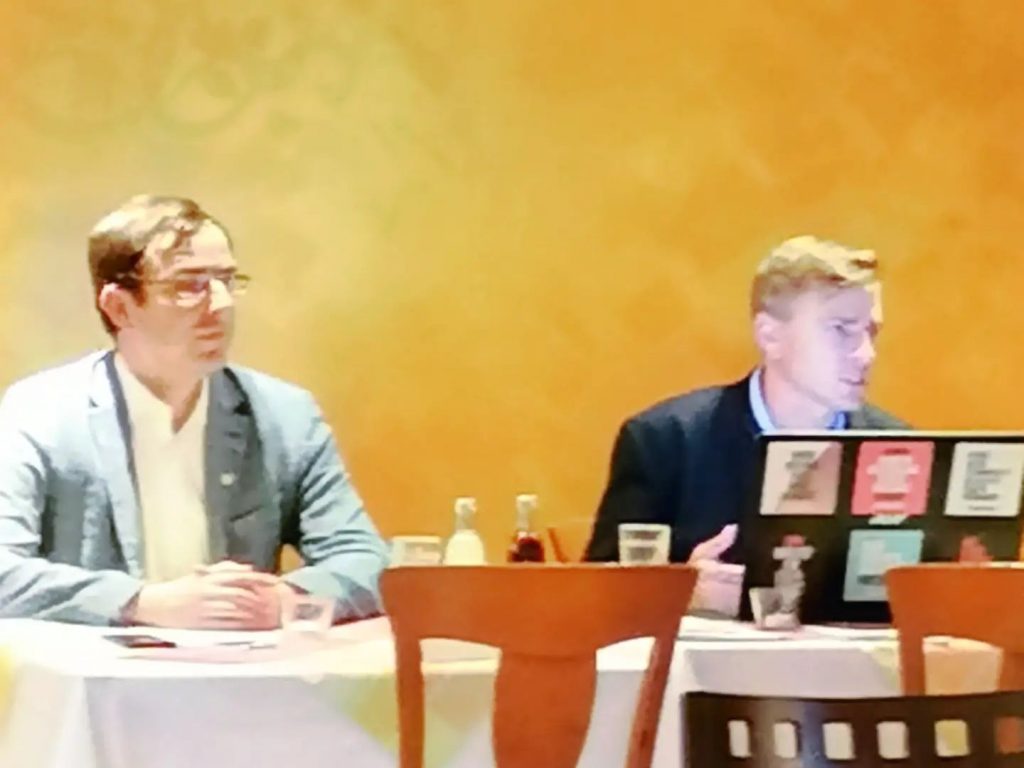On September 24, 2021 Yuri Kofner, economist, MIWI Institute, following the invitation by Dr. Anton Friesen, member of the Bundestag, gave a lecture in Suhl, Thuringia, on the topic “Back to the future of the German automotive industry”.
In his lecture, the economist dealt with the importance of the auto industry for the German economy, trends on the world market, especially in China, the dirigiste climate and industrial policy of the federal government and potential alternative location-policy measures.
Summary of the lecture:
- The automotive industry is of enormous importance for the German economy: It generates almost 5 percent of GDP, directly and indirectly employs 7 percent of the workforce and is the most innovative sector.
- The business model of the German automotive industry is geared towards internationalization, especially the Asian and Chinese markets, as well as the premium segment. So far, this strategy has helped German car companies cope with the COVID economic crisis better than their European competitors.
- The structural change in the industry towards alternative drive methods and the digitization of mobility, e.g., autonomous driving, are the greatest challenges for the German automotive industry. There are convincing arguments that this transformation is being driven both by market forces, such as developments in the Chinese car market, and by state requirements, such as the EU’s climate policy and that of the German federal government (CO2 pricing and regulatory restrictions).
- There is currently no great success and no future guarantee of success in sight that a hasty and forced switch to e-mobility will make the German automotive industry a global export champion in this segment.
- On the contrary, the unilaterally targeted industrial policy against the internal combustion engine in the transport sector and in favour of e-mobility leads to a massive loss of jobs (up to 215 thousand by 2030), added value (1 to 1.4 percent of GDP) and international competitiveness.
- In addition, Germany’s tightened national solo effort in climate policy will not even help to reduce global CO2 emissions due to the Green Paradox and the carbon leakage effect.
- For this reason the author proposes to replace the current (automotive) industrial policy with a more horizontal approach that focuses on three key elements: 1) technology neutrality with more R&D support for the creation of a circular carbon economy and the use of synthetic hydrocarbon fuels; 2) return to an ordoliberal location policy (lower taxes and electricity costs, cut red tape, more free trade, more investments in (digital) infrastructure, education and research); and, 3) an explicitly pragmatic and multilateral climate policy, either through a global emissions trading system or an international climate fund.
Policy note, based on the lecture: Kofner Y. (2021). Back to the future of the German automotive industry. MIWI Institute.

